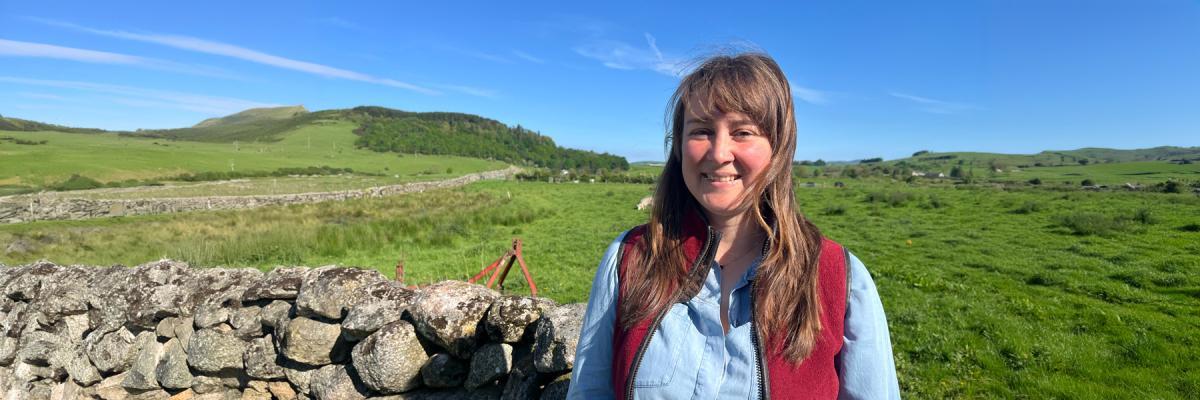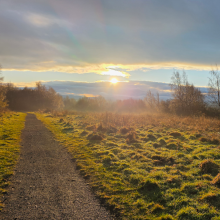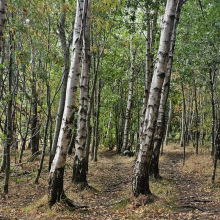Tina Laurie (University of the West of Scotland) is a member of the Rural Social Work Scotland Forum
On 9th May the Rural Social Work Scotland Forum hosted an online conference comprising of talks from six speakers and a book launch. The conference was well attended and engagement throughout was lively. As a long-term member of the forum these were my reflections.
I’d been excited to hear from all the contributors, having missed the inaugural Dumfries conference in 2020 (due to giving birth!) It felt like an opportunity to join in with the collaboration that had come from that first conference, grown slowly over the intervening four years through online seminars.
The sessions were illuminating and engaging; drawing together practice, policy and research around the theme of the conference: hidden issues. Starting off with conversations around a new book, Rural Social Work In The UK Jane Pye and Colin Turbett, the editors, talked us through the journey of writing the book as well as the individual contributions. The themes of stigma, environment and community which the book hinges around set us up for what was to come throughout the day as many more conversations emerged on these themes.
The conference then started in earnest with Jane Atterton who offered an insight into the picture of rural child poverty. The statistics that she shared were not happy listening and resonated with those at the conference working at the front line with families. Particularly shocking data was discussed around housing costs where 200% house price increases were recorded in some areas! The amplification of issues in rural and island communities highlights issues felt in the social work profession along with the issue of stigma. Jane talked about ongoing work gathering important data which will be essential to understand in the coming years if trends continue as they are.
Roseanna McPhee then talked to us about the ‘tinker housing experiments’ and her own experiences as a Scottish Gypsy Traveller. This was a session that really resonated with the audience with many comments of surprise at hearing about these issues for the first time. Roseanna gave us a fascinating insight into her own lived experience. Again, the word stigma here was a real feature, but it also told of significant historic and systemic discrimination, the damage this does, and how this relates to current campaigns for a public apology. The light shed on these events is hugely helpful and here, as with all the presenters, there were comments of how important awareness is and how hidden this issue has been.
There was a peak of attendance during Roseanne’s talk of 247 people which is testament to how well received Roseanna was by the audience.
We then heard a recording on protecting rural young people from sexual abuse and exploitation by Sarah Nelson, one of the contributors to the rural social work book. This topic links again to the issues of stigma and hidden issues; what was fascinating about Sarah’s presentation was the introduction of those dismissive attitudes that keep these kinds of issues hidden in rural communities, the ‘it wouldn’t happen here’ kind of attitude. What came out in the presentation, for me, was the real vulnerabilities that this kind of attitude can be hiding.
Next we had another book contributor; Vik Kelly-Teare who spoke about domestic violence and abuse, shining light on domestic violence in same sex relationships between women. It is always very important and refreshing to hear about this perspective which is not often acknowledged in conversations about domestic violence. The role of community in keeping people safe and collaborative practice between rural professionals was a real take home message from Vik, hidden issues such as this one having some significant risks involved when they go unnoticed for long periods of time.
Becky Squires, also a contributor to the book, then spoke about older people in rural communities. This was a wonderful, reflective and considered account of rural social work with older people and the idea of ageing in the right place. The importance of hearing the voices of those with lived experience – that idea that Becky called a cliché about the social work process being as important and the outcomes; she really highlighted the importance of space in our social work practice.
Finally we heard from Ben Ferrugia of Social Work Scotland on making sure rural social worker’s voices are heard. At a conference about hidden issues it was an entirely appropriate discussion to have, and consider how a National Social Work Agency can be responsive to rural as well as urban needs and can benefit and learn from rural perspectives and practices.
Understanding lived experience, hearing from Roseanna and the gap highlighted by many of the other speakers is what I personally will be taking away from this conference, as we know the social work profession has a responsibility to people that we work with to hear their voice and sharing knowledge about the rural voice felt timely and important. The chat was lively throughout and despite being online there were opportunities for collaborative discussions and sharing ideas there being a strong sense of collaboration throughout the conference.
If you missed the conference, and want to check out what speakers had to say, a recording of it is available to watch below:
Acknowledgments: Thanks to all speakers, the Rural Social Work Scotland Forum planning group members who chaired, facilitated, promoted and managed the event on the day. Thanks especially to all who came. If you would like to stay connected to the work of the Rural Social Work Scotland Forum and hear about future webinars, please follow us on X (@ScotsRuralSW) or contact the Forum Chair, Kerry Musselbrook.




